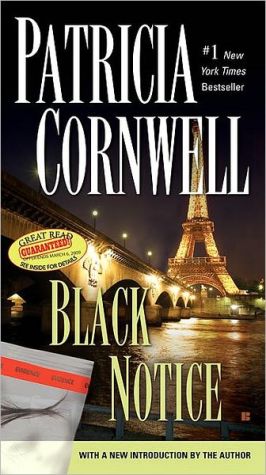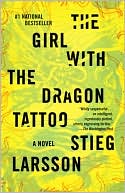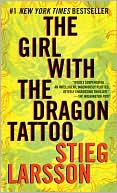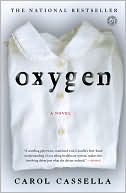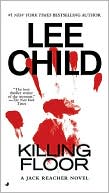Black Notice (Kay Scarpetta Series #10)
The decomposed remains of a stowaway lead Dr. Kay Scarpetta on an international search to Interpol’s headquarters in Lyon, France—and on a mission that will pull her in two opposite directions: toward protecting her career or toward the truth.
Search in google:
Patricia Cornwell fans, get ready! Dr. Kay Scarpetta is back with another heart-arresting thriller of medical mischief and mayhem. When a half-decomposed body is discovered on a cargo ship arriving from Belgium, and the autopsy uncovers nothing, Kay is right back in the mix. Now she's off to Europe, and will soon be faced with her most career-threatening — not to mention life-threatening — case yet.Publishers WeeklyIt's like a splash of cold water on a hot day to be plunged, after the irritating third-person satire of Cornwell's last novel, Southern Cross (1998), back into the bracing narration of medical examiner Kay Scarpetta. As in the nine Scarpettas past (Point of Origin, etc.), here it's not the novel's events, startling as they are, that propel the story so much as the deep-hearted responses of Kay, as real a hero as any in thriller fiction, to the "evil"--her word--that threatens. Evil wears several faces here, from petty to monstrous. Most insidious is the office sabotage--insubordination, thefts, fraudulent e-mails--that's making the grieving Kay look as if she's lost her grip since her lover's murder in Point of Origin. More destructive are the overt attempts by calculating Richmond, Va., deputy police chief Diane Bray to ruin Kay's career as well as that of Kay's old friend, Capt. Pete Marino. Then there's the wild rage at life that's consuming Kay's niece, a DEA agent. Finally--the plot wire that binds the sometimes scattered plot--there are the mutilation killings by the French serial killer self-styled "Loup-Garou"--werewolf. The forensic sequences boom with authority; the brief action sequences explode on the page--in the finale, overbearingly so; the interplay between Kay and Marino is boisterous as always, and there's an atmospheric sidetrip to Paris and an affecting romantic misadventure for lonely Kay. A thunderhead of disquietude hangs over this compulsively readable novel, sometimes loosing storms of suspense; but to Cornwell's considerable credit, the unease arises ultimately not from the steady potential for violence, but from a more profound horror: the vulnerability of a good woman like Kay to a world beset by the corrupt, the cruel, the demonic. One million first printing; $750,000 ad/promo; Literary Guild, Doubleday Book Club and Mystery Guild main selections; unabridged and abridged audio versions; foreign rights sold in eight countries. (July) Copyright 1999 Cahners Business Information.
This excerpt is from BLACK NOTICE by Patricia Cornwell:\ The narrow road led me through a vacant land of weeds and woods that ended abruptly at a security checkpoint. I felt as if I were crossing the border into an unfriendly country. Beyond was a train yard and hundreds of -boxcar--size orange containers stacked three and four high. A guard who took his job very seriously stepped outside his booth. I rolled down my window.\ "May I help you, ma'am?" he asked in a flat military tone.\ "I'm Dr. Kay Scarpetta," I replied.\ "And who are you here to see?"\ "I'm here because there's been a death," I explained. "I'm the medical examiner."\ I showed him my credentials. He took them from me and studied them carefully. I had a feeling he -didn't know what a medical examiner was and -wasn't about to ask.\ "So -you're the chief," he said, handing the worn black wallet back to me. "The chief of what?"\ "I'm the chief medical examiner of Virginia," I replied. "The police are waiting for me."\ He stepped back inside his booth and got on the phone as my impatience grew. It seemed every time I needed to enter a secured area, I went through this. I used to assume my being a woman was the reason, and in earlier days this was probably true-at least some of the time. Now I believed the threats of terrorism, crime and lawsuits were the explanation. The guard wrote down a description of my car and the plate number. He handed me a clipboard so I could sign in and gave me a visitor's pass, which I -didn't clip on.\ "See that pine tree down there?" he said, pointing.\ "I see quite a few pine trees."\ "The little bent one. Take a left at it and just head on towards the water, ma'am," he said. "Have a nice day."\ I moved on, passing huge tires parked here and there and several red brick buildings with signs out front to identify the U.S. Customs Service and Federal Marine Terminal. The port itself was rows of huge warehouses with orange containers lined up at loading docks like animals feeding from troughs. Moored off the wharf in the James River were two container ships, the Euroclip and the Sirius, each almost twice as long as a football field. Cranes hundreds of feet high were poised above open hatches the size of swimming pools.\ Yellow crime-scene tape anchored by traffic cones circled a container that was mounted on a chassis. No one was nearby. In fact, I saw no sign of police except for an unmarked blue Caprice at the edge of the dock apron, the driver, apparently, behind the wheel talking through the window to a man in a white shirt and a tie. Work had stopped. Stevedores in hard hats and reflective vests looked bored as they drank sodas or bottled water or smoked.\ I dialed my office and got Fielding on the phone.\ "When were we notified about this body?" I asked him.\ "Hold on. Let me check the sheet." Paper rustled. "At exactly ten -fifty--three."\ "And when was it found?"\ "Uh, Anderson -didn't seem to know that."\ "How the hell could she not know something like that?"\ "Like I said, I think she's new."\ "Fielding, there's not a cop in sight except for her, or at least I guess that's her. What exactly did she say to you when she called in the case?"\ "DOA, decomposed, asked for you to come to the scene."\ "She specifically requested me?" I asked.\ "Well, hell. -You're always everybody's first choice. That's nothing new. But she said Marino told her to get you to the scene."\ "Marino?" I asked, surprised. "He told her to tell me to respond?"\ "Yeah, I thought it was a little ballsy of him."\ I remembered Marino's telling me he would drop by the scene, and I got angrier. He gets some rookie to basically give me an order, and then if Marino can fit it in, he might swing by and see how -we're doing?\ "Fielding, when's the last time you talked to him?" I asked.\ "Weeks. Pissy mood, too."\ "Not half as pissy as mine's going to be if and when he finally decides to show up," I promised.\ Dockworkers watched me climb out of my car and pop open the trunk. I retrieved my scene case, jumpsuit and shoes, and felt eyes crawl all over me as I walked toward the unmarked car and got more annoyed with each labored step, the heavy case bumping against my leg.\ The man in the shirt and tie looked hot and unhappy as he shielded his eyes to gaze up at two television news helicopters slowly circling the port at about four hundred feet.\ "Darn reporters," he muttered, turning his eyes to me.\ "I'm looking for whoever's in charge of this crime scene," I said.\ "That would be me," came a female voice from inside the Caprice.\ I bent over and peered through the window at the young woman sitting behind the wheel. She was darkly tanned, her brown hair cut short and slicked back, her nose and jaw strong. Her eyes were hard, and she was dressed in -relaxed--leg faded jeans, -lace--up black leather boots and white -T--shirt. She wore her gun on her hip, her badge on a ball chain tucked into her collar. Air-conditioning was blasting, light rock on the radio surfing over the cop talk on the scanner.\ "Detective Anderson, I presume," I said.\ "Rene Anderson. The one and only. And you must be the doc -I've heard so much about," she said with the arrogance I associated with most people who -didn't know what the hell they were doing.\ "I'm Joe Shaw, the port director," the man introduced himself to me. "You must be who the security guys just called me about."\ He was about my age, with blond hair, bright blue eyes and skin lined from years of too much sun. I could tell by the look on his face that he detested Anderson and everything about this day.\ "Might you have anything helpful to pass along to me before I get started?" I said to Anderson over loud blowing air and rotating helicopter blades. "For example, why there are no police securing the scene?"\ -"Don't need 'em," Anderson said, pushing open her door with her knee. "It's not like just anybody can drive right on back here, as you found out when you tried."\ I set the aluminum case on the ground. Anderson came around to my side of the car. I was surprised by how small she was.\ "Not much I can tell you," she said to me. "What you see is what we got. A container with a real stinker inside."\ "No, there's a lot more you can tell me, Detective Anderson," I said. "How was the body discovered and at what time? Have you seen it? Has anybody gotten near it? Has the scene been contaminated in any way? And the answer to the last one had better be no, or I'm holding you responsible."\ She laughed. I began pulling the jumpsuit over my clothes.\ "Nobody's even gotten close," she told me. "No volunteers for that one."\ "You -don't have to go inside the thing to know what's there," Shaw added.\ I changed into the black Reeboks and put on the baseball cap. Anderson was staring at my Mercedes.\ "Maybe I should go work for the state," she said.\ I looked her up and down.\ "I suggest you cover up if -you're going in there," I said to her.\ "I gotta make a couple calls," she said, walking off.\ "I -don't mean to tell people how to do their jobs," Shaw said to me. "But what the hell's going on here? We got a dead body right over there and the cops send in a little shit like that?"\ His jaw muscles were clenching, his face bright red and dripping sweat.\ "You know, you -don't make a dime in this business unless things are moving," he went on. "And not a darn thing's moved for more than two and a half hours."\ He was working so hard not to swear around me.\ "Not that I'm not sorry about someone being dead," he went on. "But I sure would like you folks to do your business and leave." He scowled up at the sky again. "And that includes the media."\ "Mr. Shaw, what was being shipped inside the container?" I asked him.\ "German camera equipment. You should know the seal on the container's latch -wasn't broken. So it appears the cargo -wasn't tampered with."\ "Did the foreign shipper affix the seal?"\ "That's right."\ "Meaning the body, alive or dead, most likely was inside the container before it was sealed?" I said.\ "That's what it looks like. The number matches the one on the entry filed by the customs broker, nothing the least out of the ordinary. In fact, this cargo's already been released by Customs. Was five days ago," Shaw told me. "Which is why it was loaded straight on a chassis. Then we got a whiff and no way that container was going anywhere."\ I looked around, taking in the entire scene at once. A light breeze clinked heavy chains against cranes that had been offloading steel beams from the Euroclip, three hatches at a time, when all activity stopped. Forklifts and flatbed trucks had been abandoned. Dockworkers and crew had nothing to do and kept their eyes on us from the tarmac.\ Some looked on from the bows of their ships and through the windows of deckhouses. Heat rose from -oil--stained asphalt scattered with wooden frames, spacers and skids, and a CSX train clanked and scraped through a crossing beyond the warehouses. The smell of creosote was strong but could not mask the stench of rotting human flesh that drifted like smoke on the air.\ "Where did the ship set sail from?" I asked Shaw as I noticed a marked car parking next to my Mercedes.\ "Antwerp, Belgium, two weeks ago," he replied as he looked at the Sirius and the Euroclip. "Foreign flag vessels like all the rest we get. The only American flags we see anymore are if someone raises one as a courtesy," he added with a trace of disappointment.\ A man on the Euroclip was standing by the starboard side, looking back at us with binoculars. I thought it strange he was dressed in long sleeves and long pants, as warm as it was.\ Shaw squinted. "Darn, this sun is bright."\ "What about stowaways?" I asked. "Although I -can't imagine anyone choosing to hide inside a locked container for two weeks on high seas."\ "Never had one that I know of. Besides, -we're not the first port of call. Chester, Pennsylvania, is. Most of our ships go from Antwerp to Chester to here, and then straight back to Antwerp. A stowaway's most likely going to bail out in Chester instead of waiting till he gets to Richmond.\ -"We're a niche port, Dr. Scarpetta," Shaw went on.\ I watched in disbelief as Pete Marino climbed out of the cruiser that had just parked next to my car.\ "Last year, maybe a hundred and twenty oceangoing ships and barges called in the port," Shaw was saying.\ Marino had been a detective as long as -I'd known him. I had never seen him in uniform.\ "If it were me and I was trying to jump ship or was an illegal alien, I think -I'd want to end up in some really big port like Miami or L.A. where I could get lost in the shuffle."\ Anderson walked up to us, chewing gum.\ "Point is, we -don't break the seal and open them up unless we suspect something illegal, drugs, undeclared cargo," Shaw continued. "Every now and then we preselect a ship for a full shakedown search to keep people honest."\ "Glad I -don't have to dress like that anymore," Anderson remarked as Marino headed toward us, his demeanor cocky and pugilistic, the way he always acted when he was insecure and in an especially foul mood.\ "Why's he in uniform?" I asked her.\ "He got reassigned."\ "Clearly."\ "There's been a lot of changes in the department since Deputy Chief Bray got here," Anderson said as if she were proud of the fact.\ I -couldn't imagine why anyone would throw someone so valuable back into uniform. I wondered how long ago this had happened. I was hurt Marino -hadn't let me know, and I was ashamed I -hadn't found out anyway. It had been weeks, maybe a month, since I had called just to check on him. I -couldn't remember the last time -I'd invited him to drop by my office for coffee or to come to my house for dinner.\ "What's going on?" he gruffly said as a greeting.\ He -didn't give Anderson a glance.\ "I'm Joe Shaw. How you doing?"\ "Like shit," Marino sourly replied. "Anderson, you decide to work this one all by yourself? Or is it just the other cops -don't want nothing to do with you?"\ She glared at him. She took the gum out of her mouth and tossed it as if he had ruined the flavor.\ "You forget to invite anyone to this little party of yours?" he went on. "Jesus!" He was furious.\ Marino was strangled by a -short--sleeved white shirt buttoned up to the collar and a -clip--on tie. His big belly was in a shoving match with dark blue uniform pants and a stiff leather duty belt fully loaded with his -Sig--Sauer -nine--millimeter pistol, handcuffs, extra clips, pepper spray and all the rest. His face was flushed. He was dripping sweat, a pair of Oakley sunglasses blacking out his eyes.\ "You and I have to talk," I said to him.\ I tried to pull him off to the side, but he -wouldn't budge. He tapped a Marlboro out of the pack he always had on him somewhere.\ "You like my new outfit?" he sardonically said to me. "Deputy Chief Bray thought I needed new clothes."\ "Marino, -you're not needed here," Anderson said to him. "In fact, I -don't think you want anyone to know you even thought about coming here."\ "It's captain to you." He blew out his words on gusts of cigarette smoke. "You might want to watch your -smart--ass mouth because I outrank you, babe."\ Shaw watched the rude exchange without a word.\ "I -don't believe we call female officers babe anymore," Anderson said.\ -"I've got a body to look at," I said.\ -"We've got to go through the warehouse to get there," Shaw told me.\ "Let's go," I said.\ He walked Marino and me to a warehouse door that faced the river. Inside was a huge, dimly lit, airless space that was sweet with the smell of tobacco. Thousands of bales of it were wrapped in burlap and stacked on wooden pallets, and there were tons of magfilled sand and orifet that I believed were used in processing steel, and machine parts bound for Trinidad, according to what was stamped on crates.\ Several bays down, the container had been backed up to a loading dock. The closer we got to it, the stronger the odor. We stopped at the crime-scene tape draped across the container's open door. The stench was thick and hot, as if every molecule of oxygen had been replaced by it, and I willed my senses to have no opinion. Flies had begun to gather, their ominous noise reminding me of the -high--pitched buzzing of a -remote--control toy plane.\ "Were there flies when the container was first opened?" I asked Shaw.\ "Not like this," he said.\ "How close did you get?" I asked as Marino and Anderson caught up with us.\ "Close enough," Shaw said.\ "No one went inside it?" I wanted to make sure.\ "I can guarantee you that, ma'am." The stench was getting to him.\ Marino seemed unfazed. He shook out another cigarette and mumbled around it as he fired the lighter.\ "So, Anderson," he said. "I -don't guess it could be livestock, you know, since you -didn't look. Hell, maybe a big dog that accidentally got locked up in there. Sure would be a shame to drag the doc here and get the media all in a lather and then find out it's just some poor ol' wharf dog rotted in there."\ He and I both knew there was no dog or pig or horse or any other animal in there. I opened my scene case while Marino and Anderson went on carping at each other. I dropped my car key inside and pulled on several layers of gloves and a surgical mask. I fitted my -thirty--five-millimeter Nikon with a flash and a -twenty--eight-millimeter lens. I loaded -four--hundred--speed film so the photographs -wouldn't be too grainy, and slipped sterile booties over my shoes.\ "It's just like when we get bad smells coming from a -closed--up house in the middle of July. We look through the window. Break in if we have to. Make sure what's in there's human before we call the M.E.," Marino continued to instruct his new protégé.\ I ducked under the tape and stepped inside the dark container, relieved to find it was only half full of neatly stacked white cartons, leaving plenty of room to move around. I followed the beam of my flashlight deeper, sweeping it from side to side.\ Near the back, it illuminated a bottom row of cartons soaked with the reddish purge fluid that leaks from the nose and mouth of a decomposing body. My light followed shoes and lower legs, and a bloated, bearded face jumped out of the dark. Bulging milky eyes stared, the tongue so swollen it protruded from the mouth as if the dead man were mocking me. My covered shoes made sticky sounds wherever I stepped.\ The body was fully clothed and propped up in the corner, the container's metal walls bracing it from two sides. Legs were straight out, hands in the lap beneath a carton that apparently had fallen. I moved it out of the way and checked for defense injuries, or for abrasions and broken nails that might suggest he had tried to claw his way out. I saw no blood on his clothes, no sign of obvious injuries or that a struggle had taken place. I looked for food or water, for any provisions or holes made through the container's sides for ventilation, and found nothing.\ I made my way between every row of boxes, squatting to shine oblique light on the metal floor, looking for shoe prints. Of course, they were everywhere. I moved an inch at a time, my knees about to give out. I found an empty plastic wastepaper basket. Then I found two silvery coins. I bent close to them. One was a deutsche mark. I -didn't recognize the other one and touched nothing.\ Marino seemed a mile away, standing in the container's opening.\ "My car key's in my case," I called out to him through the surgical mask.\ "Yeah?" he said, peering inside.\ "Could you go get the -Luma--Lite? I need the -fiber--optic attachment and the extension cord. Maybe Mr. Shaw can help you find somewhere to plug it in. Has to be a grounded receptacle, -one--fifteen VAC."\ "I love it when you talk dirty," he said.\ Reprinted from Black Notice by Patricia Cornwell by permission of G. P. Putnam's Sons, a member of Penguin Putnam Inc. Copyright © 1999 by Cornwell Enterprises, Inc. All rights reserved. This excerpt, or any parts thereof, may not be reproduced in any form without permission.\
\ From Barnes & NobleThe Barnes & Noble Review\ In Black Notice, which is the best Kay Scarpetta novel to date, Patricia Cornwell learns what most great novelists — from Dickens. to F. Scott Fitzgerald to Richard Price — learn at some point in their careers. There's nothing wrong with a little soap opera. \ Please don't ask me about the plot because it's sort of all over the place. A lover of Kay's dies. Somebody in her office is out to sabotage her career. Her niece Lucy is in a lot of trouble with some very nasty people. And there's a truly terrible killer running around. All of these story elements work, some better than others, but each is serviceable.\ But the tone — and heart — of the novel is about betrayal. Kay's friend betrays her in his death. Her mind betrays her in her response to his death. Her superiors betray her in their cynicism and spiritual corruption. Even her niece betrays her in the chances she takes. She tries to find love and fails. And even when she tries to settle for mere piece of mind, she's betrayed. Her office enemies are relentless.\ Cornwell has never written this intensely before. In this novel the subtext is far more interesting — and believable — than the surface. The hints of hysteria and paranoia read like an update of Cornell Woolrich. And her sad, lonely battle to salvage some sanity and honor out of what is swirling around her makes for savagely fascinating reading.\ This is a triumph for Cornwell — and a feast for her readers.\ —Ed Gorman\ \ \ \ \ \ Publishers Weekly - Publisher's Weekly\ It's like a splash of cold water on a hot day to be plunged, after the irritating third-person satire of Cornwell's last novel, Southern Cross (1998), back into the bracing narration of medical examiner Kay Scarpetta. As in the nine Scarpettas past (Point of Origin, etc.), here it's not the novel's events, startling as they are, that propel the story so much as the deep-hearted responses of Kay, as real a hero as any in thriller fiction, to the "evil"--her word--that threatens. Evil wears several faces here, from petty to monstrous. Most insidious is the office sabotage--insubordination, thefts, fraudulent e-mails--that's making the grieving Kay look as if she's lost her grip since her lover's murder in Point of Origin. More destructive are the overt attempts by calculating Richmond, Va., deputy police chief Diane Bray to ruin Kay's career as well as that of Kay's old friend, Capt. Pete Marino. Then there's the wild rage at life that's consuming Kay's niece, a DEA agent. Finally--the plot wire that binds the sometimes scattered plot--there are the mutilation killings by the French serial killer self-styled "Loup-Garou"--werewolf. The forensic sequences boom with authority; the brief action sequences explode on the page--in the finale, overbearingly so; the interplay between Kay and Marino is boisterous as always, and there's an atmospheric sidetrip to Paris and an affecting romantic misadventure for lonely Kay. A thunderhead of disquietude hangs over this compulsively readable novel, sometimes loosing storms of suspense; but to Cornwell's considerable credit, the unease arises ultimately not from the steady potential for violence, but from a more profound horror: the vulnerability of a good woman like Kay to a world beset by the corrupt, the cruel, the demonic. One million first printing; $750,000 ad/promo; Literary Guild, Doubleday Book Club and Mystery Guild main selections; unabridged and abridged audio versions; foreign rights sold in eight countries. (July) Copyright 1999 Cahners Business Information.\ \ \ Library JournalKay Scarpetta's on the case when the body of a stowaway is found in a sealed container on a ship arriving in Richmond from Belgium.\ \ \ \ \ Marilyn StasioScarpetta has a tongue as sharp as a sawtooth, and when she's in one of her cut-'em-up moods, you want to follow her anywhere, from the tattoo parlor to the Paris morgue.\ — The New York Times Book Review\ \ \ \ \ Lucy AtkinsThe impulse that once made public execution so popular probably lies behind Cornwell's enormous popularity. There is a grim fascination in scrutinizing death...The rest of the appeal of these novels is down to Scarpetta herself. She...is hardly sympathetic...But she holds the same power over the reader as an impressive boss does over an underling: she is always professional.\ —From The Times Literary Supplement.\ \ \ \ \ Randy Michael SignorLet’s get something out of the way: This is the best book yet in Patricia Cornwell’s Kay Scarpetta series. Hands down. No contest. \ After a couple of weak entries in the series—and the disturbingly poor non-Scarpetta novels—I had been growing uneasy with each new release. After discovering Cornwell’s first Scarpetta novel, Postmortem, I’d anticipated each new installment with relish, but the last several have been tepid imitations of the earlier work.\ But, ho boy, is this one a doozy or what?\ I’ve always been somewhat puzzled by my attraction to these books. I like my thrillers and detective fiction to be tough, which translates to brawny guys who shoot first and wisecrack second. But something about Virginia State Medical Examiner Kay Scarpetta appealed to me from the start. Part of it has always been the fascinating forensics information, the application of precise knowledge; it’s Sherlock Holmes territory, the smarty-pants seeing the world in a little more detail than the rest of us. Scarpetta is smart, and smart is always attractive, if not outright sexy. Also, there is considerable believable tension beneath the longstanding relationships: Scarpetta and her niece Lucy, now an agent with the Bureau of Alcohol, Tobacco and Firearms; Scarpetta and walking toxic-waste-pile police detective Pete Marino, who is Scarpetta’s polar opposite; Scarpetta and any number of state or Federal bureaucrats; Scarpetta and her late lover, FBI profiler Benton Wesley; and most interesting, Scarpetta and just about any other strong-willed, accomplished woman.\ One of the charms of the best crime fiction is its ability to appear commonplace, meaning that the reader can readily believe that whatever happens in the book could in fact be going on right now, quietly (or maybe not so quietly) somewhere. That’s why, when Tom Clancy had a 747 do a kamikaze number into the United States Capitol, wiping out most of Congress, he crossed a line; he was no longer writing about our world but some other, parallel United States. And when Cornwell finished a couple of her recent Scarpetta novels in a similar fashion, she left many of her readers ungrounded in the gritty reality that had in the past given her books their punch.\ There is a kind of gilded ordinariness about Cornwell’s best work. The minutiae of forensics evidence is balanced against the finality of homicide, the baser emotions (anger, fear and so on) balanced against the nobleness of the law enforcement officer who represents, at his or her best, the interests of the victims, who can no longer seek justice themselves.\ “Black notice” is the term used by Interpol for requests by member nations for a “corpse to be identified.” The corpse to be identified in this book is found inside a container unloaded from a ship recently docked in Richmond from Belgium. Scarpetta concludes that the victim drowned in fresh water; mysterious long, silky blonde hairs cover the inside of the victim’s clothing; and he was beaten and mutilated in bizarre ways. Also, a note in French is found scratched on a box near the corpse: “Bon voyage, le loup-garou.” Now, everyone knows what bon voyage means; it’s the last part that stumps the local police detectives. We soon learn it means werewolf.\ At this point I dreaded that Cornwell was sabotaging her star character with absurd plot twists. Not to fear. Black Notice is complex, complicated and harmonious. Where in the past not every element meshed, here everything meshes so smoothly you never notice how truly complex the story is. It’s like driving a luxury car with a powerful engine: You forget how much oomph you’ve got until you look down at the speedometer and see you’ve doubled the national speed limit.\ In the preceding Scarpetta tale, her longtime lover Wesley was murdered. This then is the first book to address the effects of his death. They are predictably profound. But what surprises is how well Cornwell incorporates all of the parts of Scarpetta’s life into the weave of this story.\ This is a book of transitions. Scarpetta must deal with her grief for Wesley. Detective Marino’s life also seems to be in even more of an uproar than usual. Lucy has been placed undercover in Miami with Drug Enforcement Agency agent Jo Sanders, who also happens to be Lucy’s lover. There is also a palpable tension between Scarpetta and a much-younger ATF agent assigned to Interpol.\ But perhaps the most interesting element Cornwell explores (or reveals) is the incredible sense of rage unleashed by the new Deputy Chief—the gorgeous, powerful, wealthy and hugely ambitious Diane Bray. From the start she is at war with Scarpetta. At one point Cornwell has Scarpetta note that one powerful woman’s worst enemy is most often another woman, bringing to mind Cornwell’s much publicized personal problems stemming from an affair with the wife of an FBI agent.\ In Cornwell’s Scarpetta novels you can just about count on several things: Lucy will be an integral part of the story (she is, after all, Scarpetta’s surrogate child); Marino will irritate everyone he comes in contact with but will also be the best homicide detective on the scene; and the divide between Scarpetta’s personal and professional life will be a chasm marked with chaos and ennui. Scarpetta is in constant conflict with herself; she seeks emotional release but denies the power of her emotions in general.\ In short, Scarpetta is complex and perhaps unknowable, and maybe that’s why we keep coming back. We are enticed to learn more, in spite of all we know already. She is like every good character we have grown fond of who is both a friend and a stranger. We seek her company because we are comfortable, but also because we want to immerse ourselves in her mystery.\ \ \ \ \ \ Kirkus ReviewsVirginia Chief Medical Examiner Kay Scarpetta has never liked Christmas, and this year, when she's still mourning the death of her FBI lover Benton Wesley (Point of Origin, 1998), looks like her worst holiday season ever. While she can't identify or name the exact cause of death, the corpse found in a sealed shipping container aboard a cargo ship from Belgium is the least of her problems—even though Cornwell leads from strength by presenting one of her most extended (and unnerving) postmortems. Just as Scarpetta and her longtime police ally Capt. Pete Marino are running into industrial-strength flak from Richmond's new Deputy Chief, ambitious, manipulative Diane Bray, someone in Scarpetta's office is sabotaging her more underhandedly: a series of petty thefts is only the nuisance that finally awakens her to a fraud countermanding her orders and masquerading as her over the Internet. And her niece Lucy Farinelli, an agent working out of Alcohol, Tobacco, and Firearms' Miami office, is undercover with a bunch of seriously bad people. The web of evil that binds all these plots together (think drug smuggling; think Interpol; think werewolves) isn't believable for a minute, but expertly mired in Scarpetta's fathomless professional battles, you won't have a minute to think about it till you've turned the last page. It's fascinating to watch Scarpetta and her supporting cast, instead of growing, like V.I. Warshawski, become more and more themselves, like Sherlock Holmes—especially in such a brilliantly paced adventure as this one. (1,000,000 first printing; Literary Guild/Mystery Guild main selection; $750,000 ad/promo)\ \
